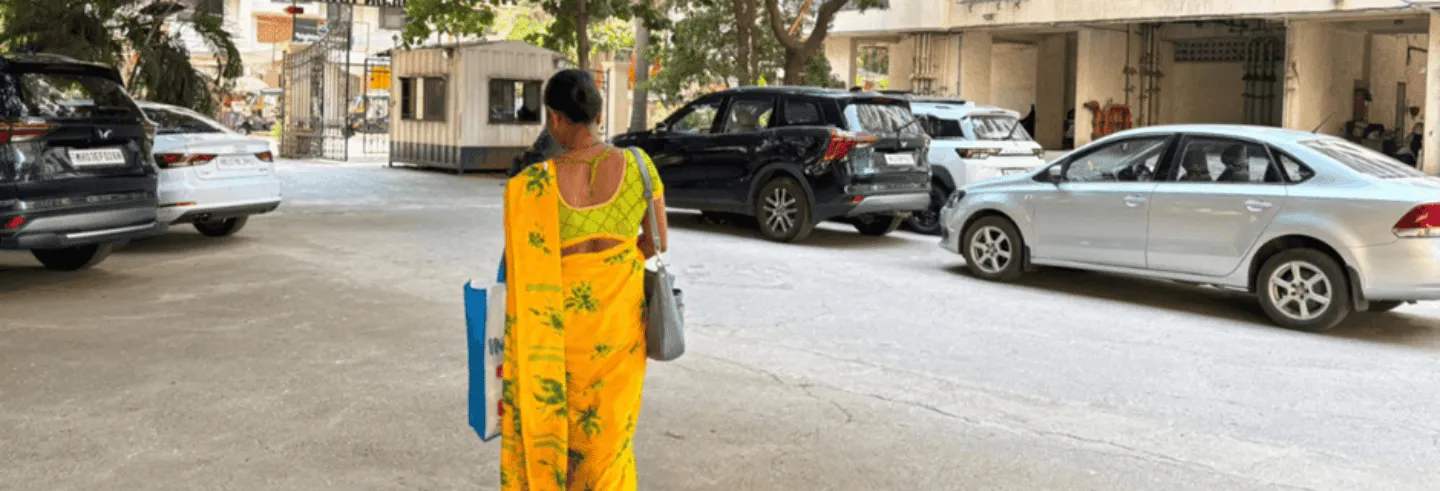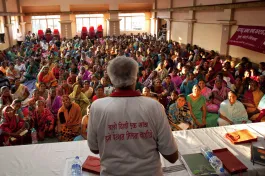When Urban Company launched its Insta Maid service, later renamed as Insta Help, in March, it stirred a significant controversy exposing the thin line between innovation and exploitation in bringing the concepts of platform or gig work to this sector. The platform offered service to users to hire domestic workers for as low as Rs 49 an hour as an “introductory offer” and promised freedom from the annoyances of employing them directly as upper middle class households have done for decades. It also assured quick access that is now a hallmark of platform or gig work.
However, in platforming this sector, several serious questions arose about workers’ rights, safety, dignity, and fair compensation. Domestic work in India is heavily informal, with no structured legal framework ensuring minimum wages, safe working conditions, or access to social security. By labelling domestic workers as ‘helps’ or ‘maids', there was a subtle but significant erasure of their barely-existing labour rights. It allowed employers to completely avoid responsibility for those they employed, reinforcing a power dynamic that has always undervalued domestic work.
In an economy that gives precedence to profits for app makers by pandering to consumers’ needs that they may not even have thought of, the app was paving the way for deepening the systemic exploitation of the workers, mostly women. While it made a section of the society feel entitled to cheap and quick work, it stripped the workers of their dignity and rights.
The platforming and positioning reinforced the perception that household work or chores can – and should – be done inexpensively by unskilled labour, further marginalising domestic workers who have been struggling for rights, recognition, and fair wages for at least four decades. This work is deeply influenced by the oppressive structures of caste and the entrenched notions of purity and pollution. Platformisation just made it sound or look ‘cool’ and convenient.
If domestic work increasingly shifts to platforms, the existing vulnerabilities of the workers will only be amplified. The promise of flexible work masks the reality of precarious and exploitative conditions. The burden of ensuring their own safety and dignity increases as they often have very little information on the households they work in, as a result of which the powerlessness of the worker worsens. While decades of struggle have ensured that domestic workers are covered under the Code on Wages, 2019, and the Social Security Code, 2020, the lack of effective implementation nullifies them.
The estimated number of domestic workers in India ranges from 4 million to 50 million, according to available sources. Over two thirds of this are women, and a vast majority Dalits and marginalised communities, many of whom migrate to cities. The absence of legal occupational protections further exacerbates their vulnerability, leaving them at the mercy of employers’ goodwill – and now the arbitrary policies of platforms that are known to be less-than-sensitive to workers’ rights.
The introduction of quick commerce models like Insta Help raises critical questions about ethical implications, primarily fair wages. The Rs 49 per hour offer perpetuates an already unreasonably low income standard for domestic workers. Although it assures domestic workers a monthly income of Rs 20,000 for 132 hours of work, approximately Rs 151 per hour, this is a point of contention.
What initially seemed like a pathway to financial independence for women in the gig economy has become a system marked by harsh working conditions as platforms impose strict-to-impossible performance metrics, charge workers for training and tools, deduct commissions, and penalise them with suspensions or job terminations. This was evident in the recent controversy surrounding Yes Madam. A study by the Gig & Platform Workers Union found that 80% of working women in India have faced workplace harassment. A 2018 study by the Observer Research Foundation and the World Economic Forum noted that 35% of women were unwilling to join the gig economy due to job insecurity and unstable emplxoyment conditions.
It is essential to recognise the labour of domestic workers as skilled and valuable work that sustains households and the economy rather than reduce it to mere ‘help’ and allow platforms to exploit the conditions. For this, the government must take meaningful steps.
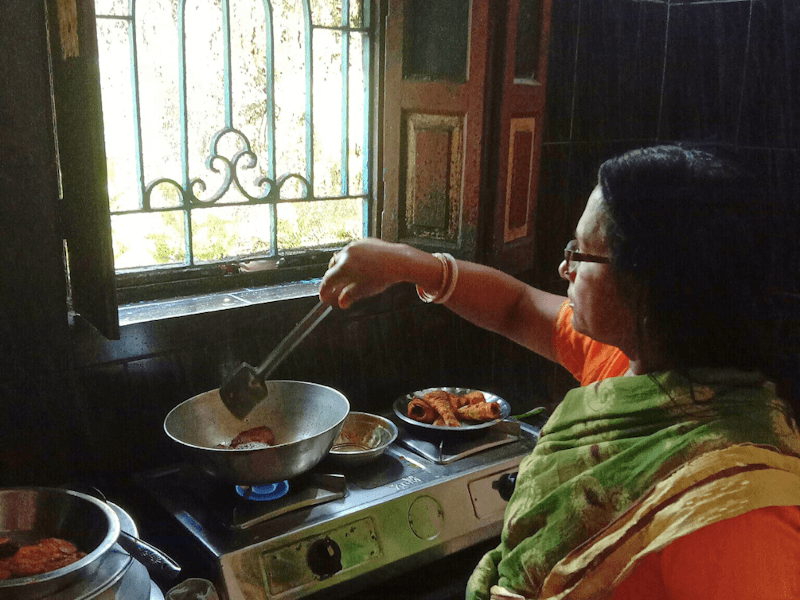
“If one day everything is on an app, then I hope we can have fair wages”
In this section, Team QoC brings together responses and thoughts of a few domestic workers in different cities on the issue of platformisation of their work. For those in absolute need, some work is better than none even if it means platform-based, uncertain and exploitative. For those with stable and sensitive employers, platforms are a no-no. Listen to what they say.
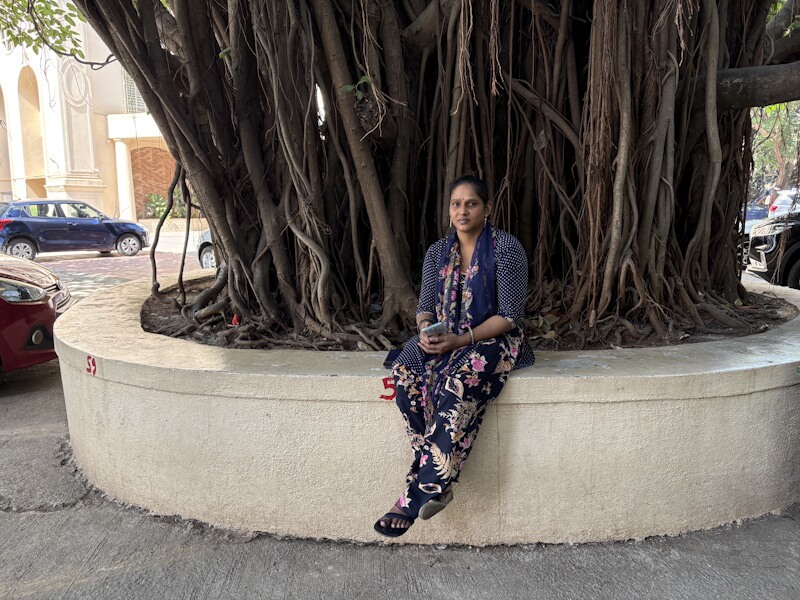
Sunita Vishnu Mangale, 32
Cook and domestic worker, Mumbai
I have been working for the last 12 years as a cook and I also wash utensils. I haven’t heard of ‘Insta Help’ but I don’t want to travel far for work, so I would not like to be on this app. I am also not educated, so this doesn’t help me. Also Rs 49 for an hour is too little because I earn at least Rs 100. If I take up badli work (replacement work), it pays double the usual rate for the hour without having to travel.
I earn around Rs 17,500 a month and I live with my two children. I do not belong to a union but after the domestic workers in this society started discussing rates, we were able to ask for more money from our employers. They increased it by Rs 200. It is still less if you look at the rising cost of living but employers don’t seem to understand. Some also cut wages for taking extra days off.
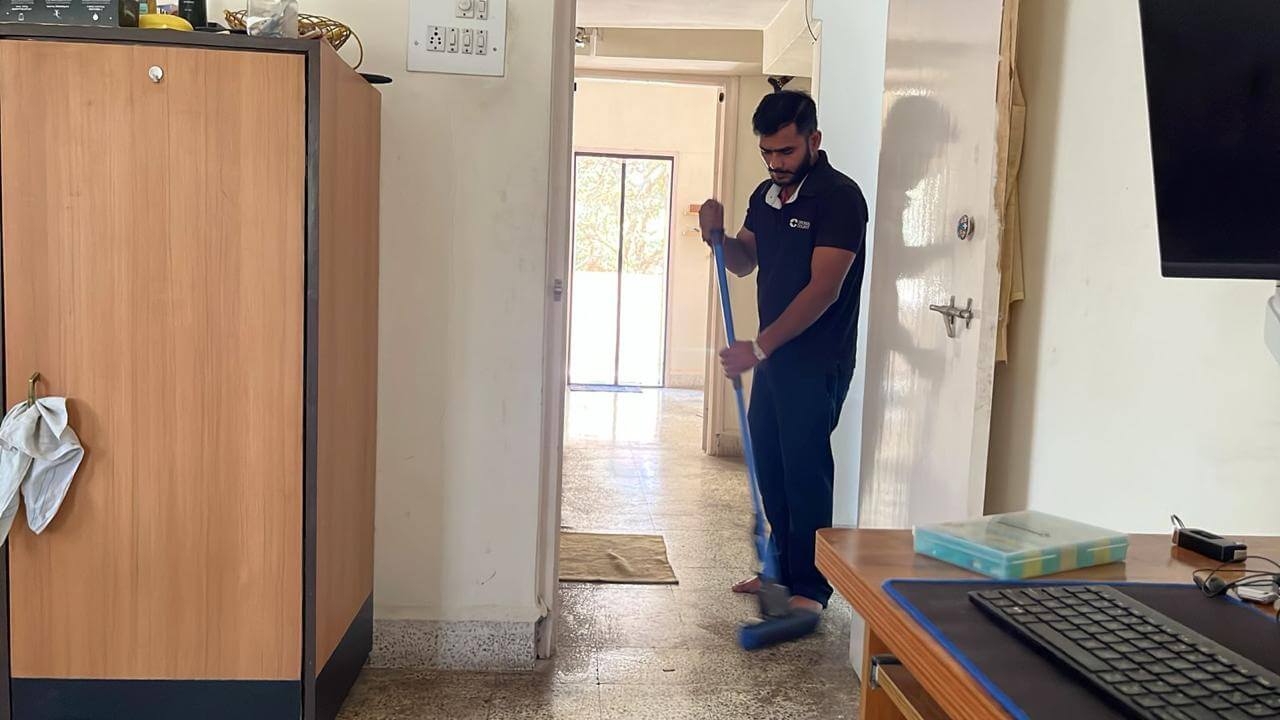
Vikas Chaudhuri, 30
Domestic worker, Pune
I would prefer to work the way I do now. My friend tried to find work through an app but it wasn’t sustainable. The app took a large cut of his earnings and he faced losses. He then stopped using it. An app that makes someone work for Rs 49 an hour means that the worker may not be skilled to do the job.
In Pune, we earn at least Rs 100 for an hour’s work. I am the sole breadwinner for my family of five. I don’t get to save money but I am able to run my household. I think my salary should increase with inflation but I don’t think I have the power to influence that. Our employers ought to understand that. We do this work out of necessity. There are also some people who pay us well. I was a union member for around 10 years but the union leaders were selfish and dishonest. I did not feel supported.
(As told to Jashvitha Dhagey)
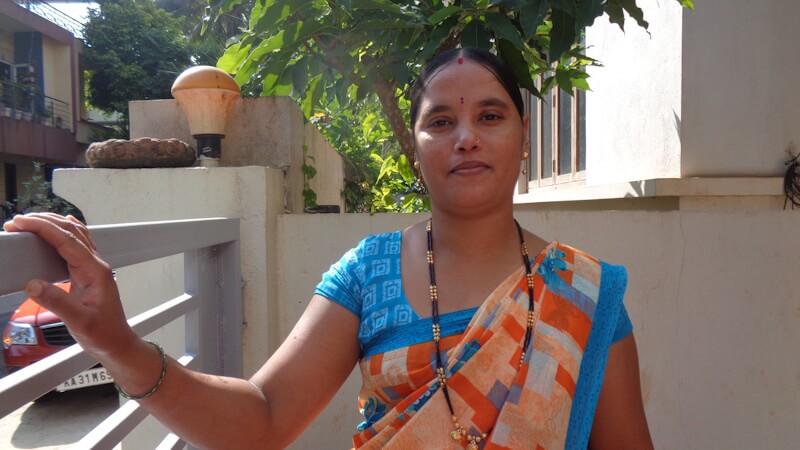
Sangeetha, 31
Cook, Belagavi (Belgaum)
I don’t have a phone but I have enough work. I am not sure if I can keep looking at my phone to find work but if that is where the future is going, I will have to do it. I work in a few houses on a rotation basis, and work mornings and afternoons. If I have time, I take up extra work.
But I cannot miss my regular work or chores at my own home to take up more work that too for only Rs 50–Rs100 an hour. I need to be paid at least Rs 200 an hour. I generally also take up jobs outside my daily work. If one day everything is going to be on an app, then I hope we can have fair wages.
(As told to Poorvi Ammanagi)
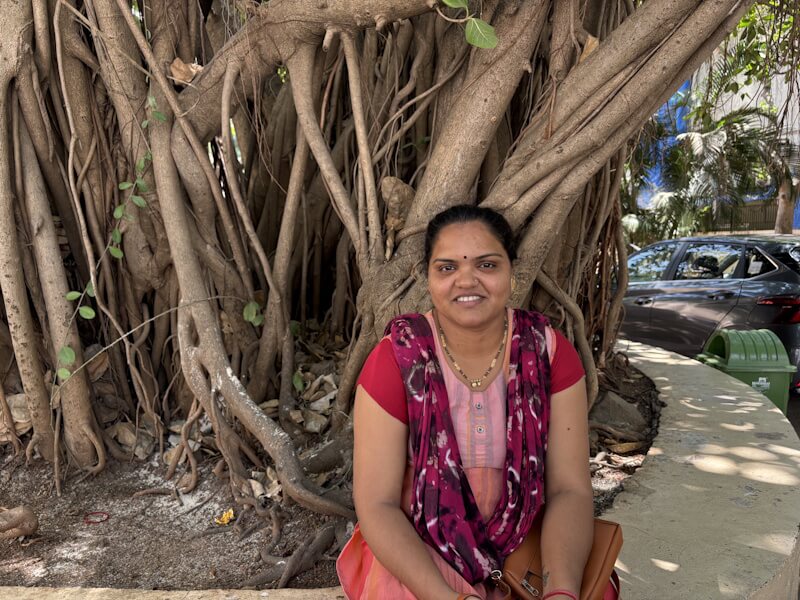
Nisha Kokare, 27
Cook, Mumbai
I have been working as a cook for about five years. I live with my husband, mother-in-law, and daughter. My husband works in an accounting office. I don’t want to be on an app-based service for domestic workers because it won’t be monetarily feasible for me. We work for an hour to earn Rs 100–200 but what this app is offering is very less. One hour of hard work is worth way more than Rs 49. Sweeping, mopping, washing utensils, and dusting to earn only Rs 49 does not make sense.
People who need work will probably get on this app; it’s better to earn Rs 49 an hour than sit at home. I earn Rs 10,000 to 15,000 a month cooking in people’s homes. Doing badli work (replacement work) fetches me another Rs 2,000–3,000 a month. Together, it’s enough. My daughter studies in a CBSE-affiliated school. I studied in a municipal school but I want to provide her with a better education. I have to go home in the afternoon when she returns from school but if I had the time to do more work, I would like to earn at least 30,000 a month.
Inflation is an issue and most employers don’t increase our pay. They pay what is the ‘running rate’ in a housing society. Sometimes, if my employer is happy I get paid extra. We get two holidays a month but most employers cut salaries when I skip more than two days. I do not know of any union here but if there are, I would like to be a part of it.
(As told to Jashvitha Dhagey)
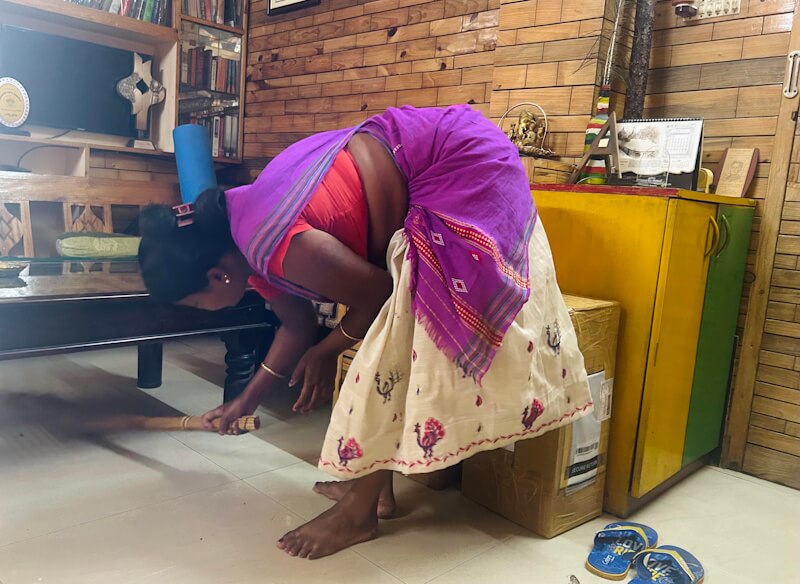
Junu, 36
Domestic worker, Guwahati
I work as a domestic worker in six households starting from around 7am and working till afternoon. The work is tiring but it pays me well enough to manage my family’s needs. On weekends, I take up extra cleaning jobs to earn a little more and this helps as everything has become very expensive. I have not heard of Insta Help. When I learned about it, I thought it could be useful but it depends on how much they pay. If it’s more than what I earn, I might consider it but I don’t know if companies like that would be flexible with time.
Inflation has made everything more difficult. It’s people like us who are affected the most. I have to think about my children and make many compromises to manage our expenses. In Satgaon, where I live, there are some gots or local unions for domestic workers, but I’m not actively involved. Still, I have a strong connection with other women domestic workers in my area. We talk and support each other.
(As told to Sugandhi Prapti)

Mangal Chavan, 45
Domestic help, Thane
There are four people in my family. My husband works as a driver while both my children go to a private school in Thane. I have heard about Insta Help. The hourly wage they offer is low but those who need work will take it up. I earn around Rs 12,000 a month working in 4–5 households. As we get older, we cannot take up more work. I am not a part of any union but I do feel there should be a union for us to raise our voices together for more pay or other issues.
(As told to Nikeita Saraf)
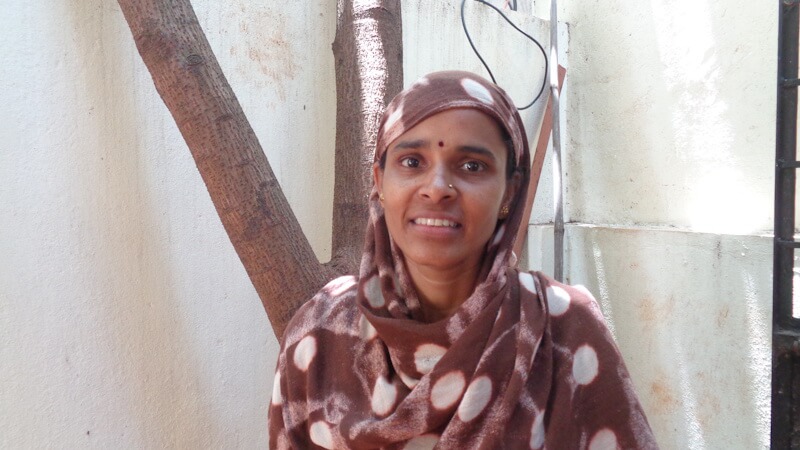
Sunita, 35
Domestic worker, Belagavi (Belgaum)
I like my everyday work routine. I know my employers, they know me. I can tell them ‘I need you to pay me this much for this work’ and they usually agree. That is better than working through an app. Also, it can work if one is educated to handle work on the phone. And if the house is far, I can’t waste time commuting for only Rs 49-50 an hour. The wage should be double that for me to even consider the app system.
Even when I take up an extra task, I do so only in the houses of people my friends know. Before saying yes, I ask them, ‘How are these people?’ or ‘Is the house good?’ I will feel scared in strangers’ houses. Apps might offer flexibility in work but my work is flexible too. If I am unable to work, I inform my employers, who are usually considerate.
(As told to Poorvi Ammanagi)
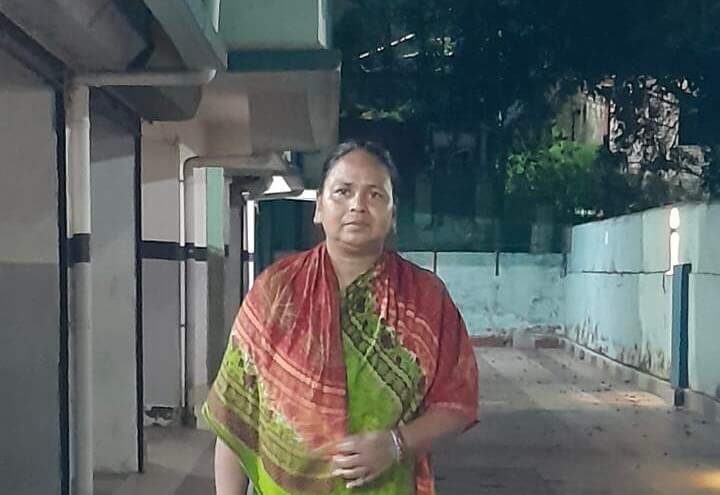
Namita Jena, 43
Domestic worker, Bhubaneswar
I was married at an early age of 15 and I have been working for 20 years now. Although I work in six houses, my monthly earning of around Rs 10,000–12,000 is not enough because prices of everything are rising. I am a single parent and I have to pay house rent, electricity, water, phone bills, education and medical expenses.
I try to earn extra when a help takes leave and my charges are Rs 120 per hour.
When I heard of Insta Help and the meagre amount of Rs 49–50 an hour, I knew they were exploiting hard-working people like us. But those desperate to earn something will take it up. If this starts in my city, it will be a threat to my work. I don’t belong to a union but it is important to form one to put forth our demands to the government.
(As told to Shobha Surin)
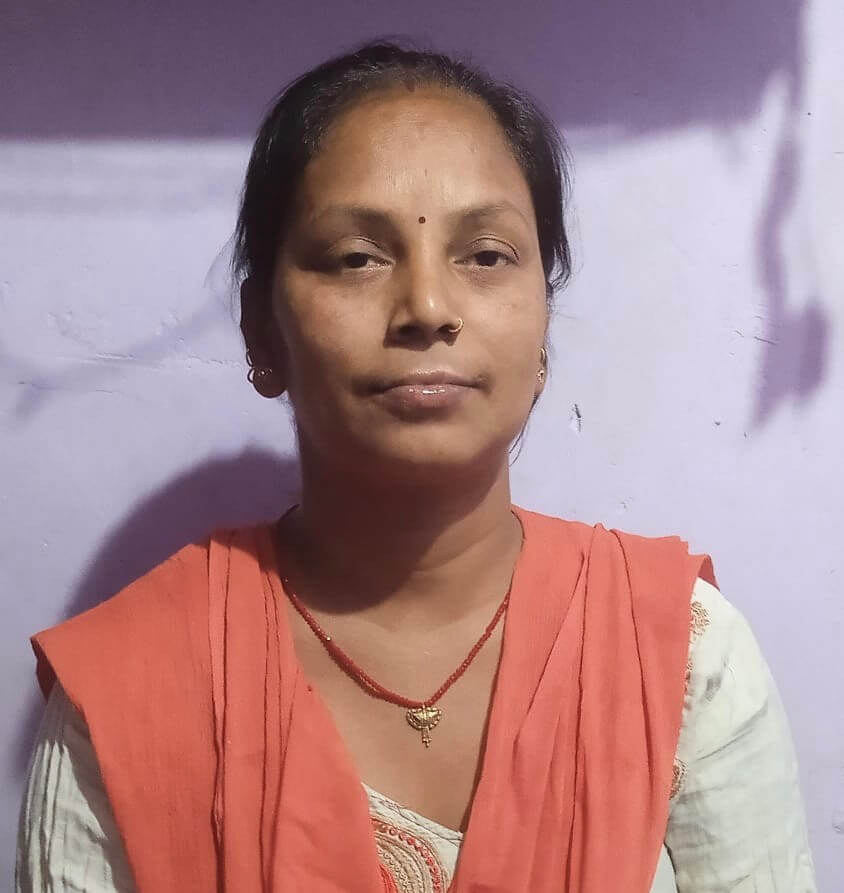
Rinku Kamat, 42
Domestic worker, Delhi
I have been working for the last eight years. We are seven in the family with five children. My husband, daughter and I work. We sometimes earn Rs 3,000 a month each or even Rs 6,000. This app will be a loss for us, we also don’t know who the employer is. Apps like this are profitable for the employers because they won’t have to pay much but it is a loss for us. We cannot show up at the employer’s house whenever they want us to as cab drivers do. We have fixed time for each house.
If I use an app to get work and we are called someplace when I have to bring children from school, who will do that? We earn for our children but we also have to be there for them. I don’t think that is fair. Since the lockdown, my wages have gone down. No matter how much money I earn, it is not enough. I have five children and as they grow up, I have to pay for their school, tuition and other activities.
I am a part of the Domestic Workers Union, Delhi. I learnt about my work and rights here. I didn’t even know what a domestic worker was. The union has helped me realise the value of the work we do. Since I joined the union, I understand the value of our work. I call myself a domestic worker, a gharelu kamgar with pride. This is not a menial job. And so it should be given importance like other professions.
Amruta SN is a climate and energy campaigner at Greenpeace India. Shalaka is an urban researcher and practitioner in Delhi.
This essay was originally published in Question of Cities and is reproduced with permission.

